Bats are a common sight throughout the United States, and many homeowners have questions about what to do if they find one in their homes. How long can a bat survive in a house before dying? Can you trap it and release it outside? What should you do if you find a baby bat? In this article, we will answer all of your questions about bats and provide some useful tips for dealing with them.
Signs Of A Trapped Bat In Your House
If you think you have a bat trapped somewhere in your house, there are a few common signs to look out for.
If you notice any of these signs then it’s likely that a bat has become stuck in your home – although this doesn’t necessarily mean that it can’t find its way out. In some cases bats can fly through open windows or doors, or even squeeze through small gaps in the walls – so it’s always worth seeing if you can help the little critter escape before taking further action. [1]
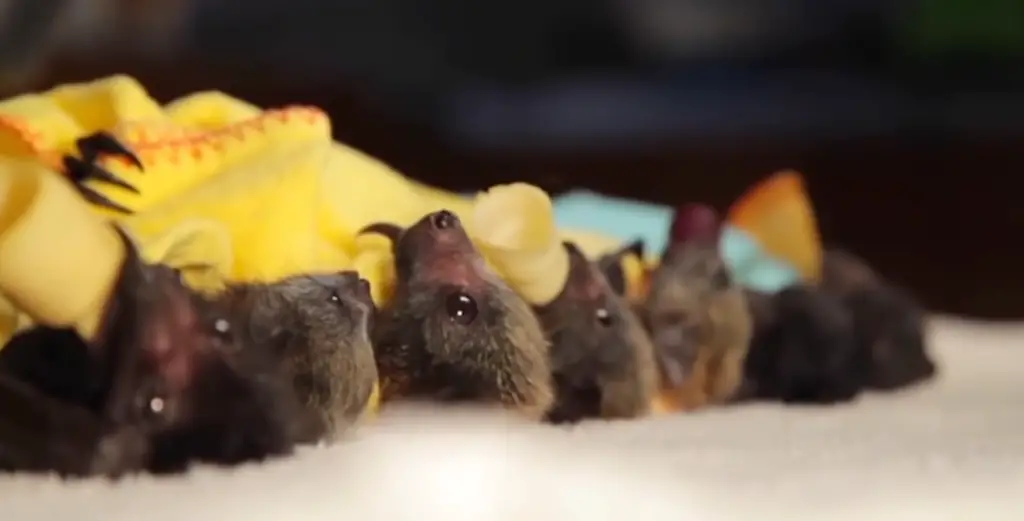
If you have a bat trapped in your home then there are a few things that you should do to ensure its safety and minimize the risk of any damage being caused:
- Close off all unnecessary entrances into the room – such as closed windows, vents and chimneys – to prevent other wildlife from entering.
- Open curtains or unblock access to natural light sources, which will help the bat orient itself and find its way out safely.
- Wear protective gear such as gloves and a face mask when handling the bat, to protect yourself from potential diseases.
- If you can’t open a window or door for the bat to escape, then contact professional wildlife control services who will be able to safely remove the animal from your home.
Once you’ve taken these steps, it’s important to understand how long a bat can survive in your house before taking any further action. Read on for our handy guide.
Should You Be Worried About Bats Living In Your House?
If you’ve noticed some bats living in your home, you may be wondering how long they can survive there. After all, no one wants to share their living space with any animal that could potentially cause harm or spread disease.
Fortunately, the answer is a bit more complicated than it seems at first glance. There are some factors that can help give you an idea of the situation.
For starters, bats generally only stay in the same house for a short period of time before moving on elsewhere. This means that if you’re seeing them around your home now, chances are they’ll move on soon enough and not stick around forever.
The amount of food in your home can also be a factor. If there are plenty of insects around for them to feed on, bats can survive much longer than if food is scarce. So if you’re noticing an increase in the number of insects, then it’s possible that the bats have found enough sustenance and will probably stick around for longer.
Overall, it’s hard to give a definitive answer to how long a bat can stay living in your house since it depends on a few different factors. However, if you’re seeing bats in your home now, there’s a good chance that they won’t stick around for too long provided you take the necessary steps to discourage them from staying.

By understanding the tips outlined above and taking some proactive steps (such as keeping windows shut, avoiding insect infestations, and decreasing temperature levels), you can help ensure that any bats living in your house don’t stay for very long.
How Long Can A Bat Live In A House?
When a bat enters your home, it can be quite a shock. But how long can a bat survive in a house? Is there anything you can do to make sure the animal is safe and ensure that it leaves eventually?
It’s impossible to predict exactly how long a particular bat will live in your home since variables like food availability and environmental factors can affect its lifespan. In general, bats tend to find shelter indoors if the outside temperatures are too cold or if they cannot find enough food sources outdoors. So, depending on these conditions, a bat may stay in your home for several weeks or even months before moving on. [2]
To make sure that any bats living in your house remain safe, it is important to take some preventative measures. For starters, make sure all windows and doors are sealed and that any potential entry points (like small cracks or gaps) are repaired as soon as possible. Additionally, avoid using insecticides or pesticides inside the house since these chemicals can be harmful to bats.
If you have any pets in the home, it’s important to keep them away from the bat so they don’t hurt it. You should also try to limit the amount of noise you make around the bat since loud noises can scare it away. Remember, bats aren’t looking for a confrontation – they just want a safe place to hide away until conditions improve outside.
Finally, if possible, help guide the bat out of your home by placing it in a paper bag and releasing it outside. This is the best way to ensure that the bat can find its own food source and have a better chance at survival.
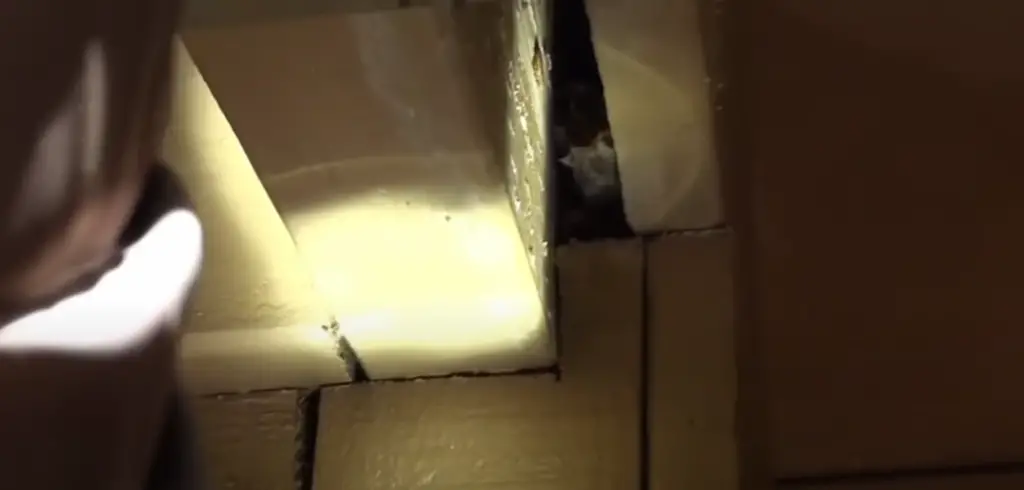
Overall, bats typically won’t stay in your home for long, provided you take the necessary precautions to keep it safe. By following these tips, you can help your new house guest get on its way as soon as possible – giving both of you peace of mind!
How Long Can A Bat Survive In A House Without Food Or Water?
However, bats will typically become weak or dehydrated after only a few days without sustenance, so it’s best to try and provide the animal with some form of sustenance if it has been inside your home for more than a week.
The best way to do this is by placing small dishes of clean water around areas where you’ve seen the bat enter your house. It’s also a good idea to leave out fruit and nuts – things that bats naturally feed on in the wild – near possible entry points where the bat may be trying to get back outside. By providing these resources, you can help the bat get back on its feet and increase its chances of survival.
Bats are amazing creatures – they have their own unique lifestyle and deserve our respect. By following these tips, you can help ensure that any bats living in your home have the best chance of survival while also keeping your family and property safe.
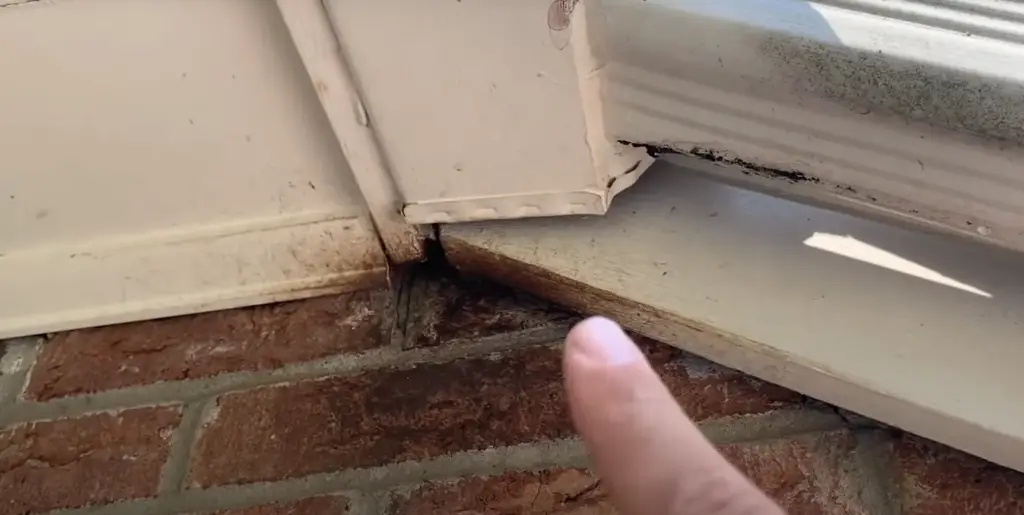
How Long Can A Bat Live In A Basement?
Basements can provide an ideal shelter for bats since they’re typically dark, quiet and undisturbed. In these conditions, a bat can live comfortably for several weeks or even months before eventually finding its way out.
If you have a bat living in your basement, the best thing to do is give it some time to leave on its own. If the animal is still there after a few weeks, try providing some food and water sources near potential entry points to give it the boost it needs to go back outside. Additionally, make sure all windows and doors are tightly sealed so that the bat cannot get back inside once it has left.
With patience and understanding, you can help any bats living in your basement find their way out safely and securely. After all, we should strive to respect these amazing creatures and give them the best chance at survival.
What Should You Do If There Are Bats In Your Walls?
If you discover that there are bats in your walls, then the next step is to figure out how to get them out. At this point, it’s important not to panic. Bats can be scared away with loud noises and bright lights, but the safest practice is to call a professional pest control service who can humanely remove any bats living in your house. If possible, try sealing up any cracks or openings in your home to prevent additional bats from entering the premise.
In some cases, especially if an infestation of multiple bats has been detected within a home or other structures, eviction may be necessary. It is never recommended to attempt bat removal on your own as most species of bats are protected by law and require special handling.
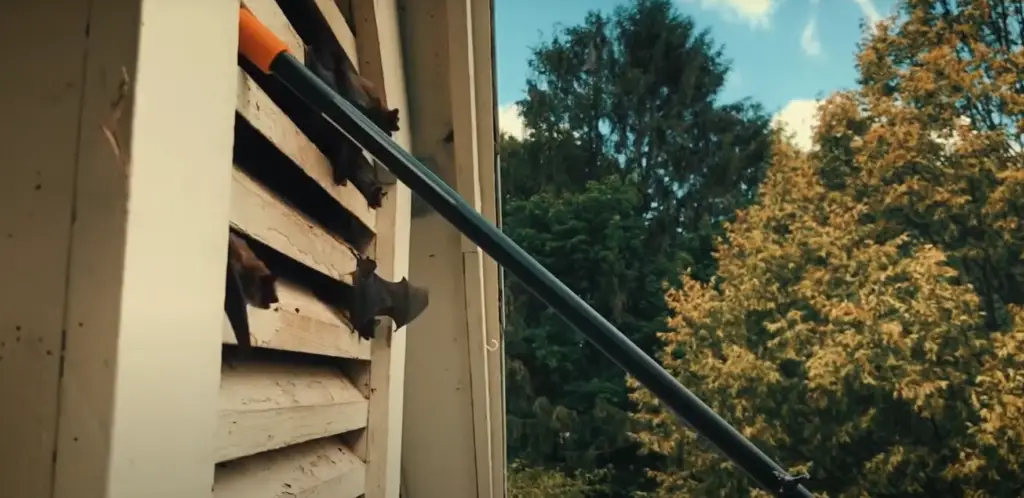
Once the bats have been removed, it is important to repair any damage caused by them. Bats can cause significant damage to insulation and other areas of a home’s structure if left unchecked for too long. In order to prevent future infestations, consider installing bat-proof screens on windows and other exterior openings. [3]
By following these steps and with the help of a pest control professional, you will be able to effectively address any bats living in your house and restore your home back to its original condition. While this process may seem daunting at first, following the recommended course of action should ensure that the issue is properly taken care of in a safe and humane way.
What Does A Dead Bat In The House Mean?
If you’ve happened to stumble across a dead bat in your house, it probably causes for concern. Bats are known to carry diseases such as rabies, so it’s important not to try and clean up or dispose of the remains without taking proper safety precautions first. It’s best to contact animal control or a wildlife expert who can safely remove the carcass and have it tested by local health authorities. In some cases, if there has been recent contact between a human and the bat before its death, medical attention may be necessary.
Safety Of Living In House With Bats
Make sure all windows are closed tightly and all possible entry points are sealed to prevent new bats from entering. If you have any open food or garbage around, make sure they’re stored away properly in sealed containers as well. Clean up any bat droppings immediately with gloves and dispose of them properly. Seek professional help if needed to eliminate the bat population in your home and keep yourself safe.
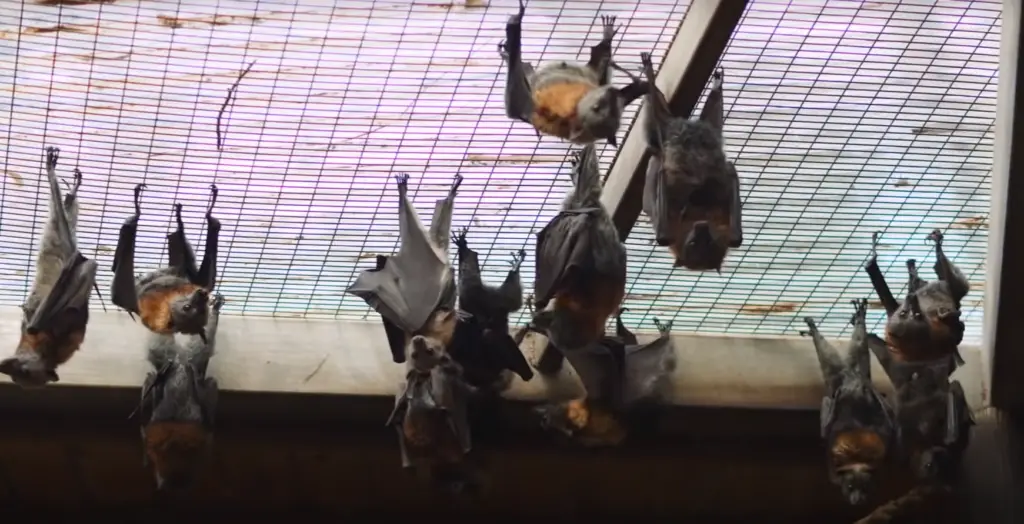
Bats need cool, dark places where they feel safe – like attics, ceilings and walls – for roosting during the day. At night, they need food, usually insects but sometimes other small animals like mice or frogs. To ensure their survival in the house, provide them with a safe and secure space away from people and pets to sleep during the day.
What Attracts A Bat To Your House?
Bats are attracted to your home for one main reason: food. Bats can smell insects and other small creatures from far away, so if you have a lot of bugs in or around your house, bats may be drawn to the area. Unfortunately, bat droppings can create an unpleasant mess and carry some diseases, so it’s important to understand what attracts them in the first place and take steps to prevent them from entering your home.
The most common sources of insect infestations include: crickets, flies, beetles, moths, ants, cockroaches, wasps and spiders. If any of these pests are present near your house or in your yard, they could attract bats looking for a meal. Additionally, bats may be drawn to lights outside your house. They’re also attracted to water sources, like a pond or swimming pool.
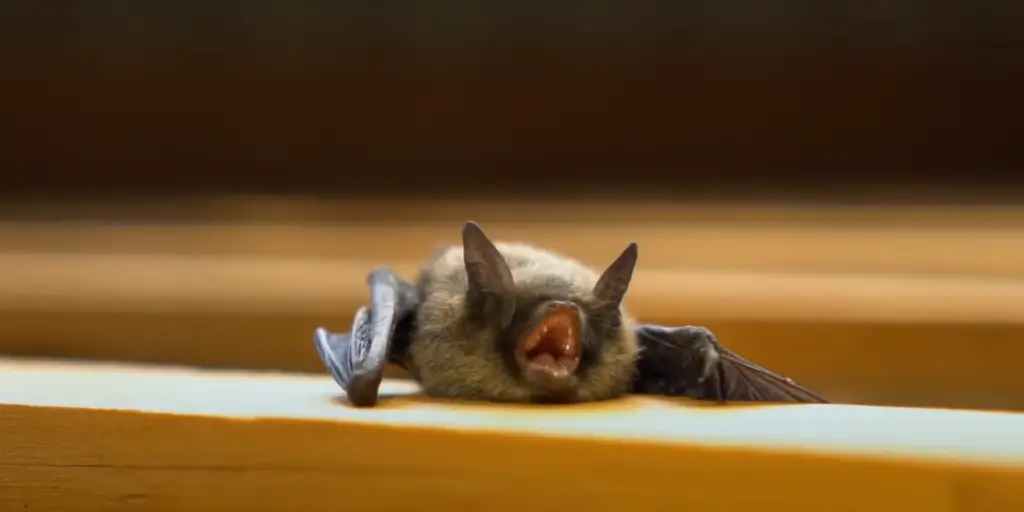
The good news is that there are some easy steps you can take to prevent bats from entering your home. First, check around the exterior of your house for any gaps or holes where bats could enter. Seal any potential entry points and make sure windows and doors close tightly. Keep the outside of your house tidy by trimming trees and plants away from the foundation and remove trash regularly so as not to attract bugs. Finally, turn off any outside lights at night to discourage bats from taking up residence in or near your home.
By following these tips, you can reduce the chances of a bat entering your home and help keep your family safe from potential health risks.
FAQ
How long can a bat stay alive in your house?
Unfortunately, bats can stay alive in your house for quite a long time if given the right conditions. On average, they can survive up to 6 months or more without food or water. However, since bats feed on insects and other small prey, they need to have access to these in order to survive. If a bat can find enough food sources in your house, it could survive even longer than 6 months! [4]
It’s important to remember that bats are wild animals and don’t usually do well when forced into close contact with humans. As such, you should take steps to remove any bats from your home as soon as possible. This includes sealing off entry points and avoiding contact with the bat itself whenever possible.
What happens if a bat dies in the house?
If a bat dies in the house, it’s important to take the proper steps to safely remove it. Bats can carry diseases, such as rabies and histoplasmosis, so if you find a dead bat inside your home, first use gloves or other protective gear while handling the carcass. If possible, double-bag the bat in plastic bags and then dispose of it in an outdoor trash receptacle. You’ll also want to thoroughly clean any area where the bat may have been as well as any items that may have come into contact with it. Lastly, be sure to wash your hands with soap and water after handling a dead bat. For more information on how to safely handle bats or their remains, consult local health authorities.
Can a bat survive in cold temperatures?
Bats are able to survive in cold temperatures, but extreme cold can cause them to become torpid and enter a state of hibernation. During this period, the bat’s body temperature drops and its metabolism slows. In some cases, bats may even become inactive for multiple weeks or longer depending on the weather conditions. If you find a bat that has become torpid due to cold temperatures, it is important not to disturb it so that it can wake up naturally when conditions improve. As always, it is best to consult local health authorities if you have any questions about handling bats or their remains. [5]
Will a bat leave on its own?
In some cases, a bat may leave on its own. Bats are nocturnal animals, so it’s likely that the bat will want to be out of your home during daylight hours. If you can provide it with an access point by opening windows or doors at night, the bat may fly off and find somewhere else to roost. However, this is not always the case – sometimes bats can become trapped and unable to find their way out. Therefore, if you’re concerned about a bat in your house, it’s important to take steps to safely remove it rather than hoping it will leave on its own.
Does one bat in the house mean more?
Chances are, if you’ve seen one bat in your house, there may be more. Bats like to hang out together and can form large colonies. If you find a bat inside your home, it is likely that there may be others living nearby or in other parts of the house. It’s best to do some investigating if you suspect multiple bats might be present. Look for evidence such as guano (bat droppings), bodies of dead bats, or sounds of fluttering wings coming from dark corners or attics.
If it turns out that there are multiple bats in your home, it’s important to not panic and contact a professional pest control service right away. Professional services will have the necessary tools and supplies to safely and humanely remove bats from your home. They can also help you to identify any potential entry points that the bats may have used to gain access and advise on measures to prevent re-entry in the future.
It is important to note that many states require permits for bat removal, so make sure you check with your local regulations before attempting a DIY approach. In some cases, it may be possible to just wait until the bats leave of their own accord during warmer weather; however, enlisting professional help is usually preferable as it gives you peace of mind knowing that all necessary precautions will be taken. Taking action sooner rather than later is always recommended as bats are known carriers of disease and parasites which can cause harm to humans and pets.
By understanding the behaviour and habits of bats, you can better determine how long they will stay in your house. With professional help, you can have peace of mind knowing that your bat problem is being taken care of safely and effectively.
Useful Video: How to Survive a Bat Infestation
Conclusion
Although bats are incredibly resilient creatures, they cannot survive in a house indefinitely. While some species can live up to several months without food or water, most will not last much longer than that. If you find a bat in your home, it is important to act quickly and seek help from wildlife experts who can remove the animal safely and humanely. You should also consider doing an inspection of your home for any potential access points that may have allowed the bat to enter in the first place. Doing so can help prevent future infestations. With these tips in mind, you can keep yourself safe and ensure that any bats living in your home have a chance at survival too!
By knowing how long a bat can survive in a house and following the steps outlined in this guide, you can keep yourself and any bats living in your home safe. Remember that bats need food and water to live, and if they cannot find it in your house, they will eventually die. If you are concerned about a bat in your home, contact wildlife experts who can help remove it safely. They can also give you tips on how to prevent future infestations.
Thanks for reading our guide. Good luck!
References
- https://www.alliancepestservices.com/blog/post/signs-that-you-may-be-experiencing-a-bat-infestation-in-your-home
- https://www.quora.com/How-long-can-a-bat-live-if-it-goes-in-my-house
- https://www.crittercontrol.com/wildlife/bats/bats-in-walls
- https://upgradedhome.com/how-long-can-a-bat-survive-in-a-house/
- https://www.nps.gov/subjects/bats/hibernate-or-migrate.htm














Leave a Reply